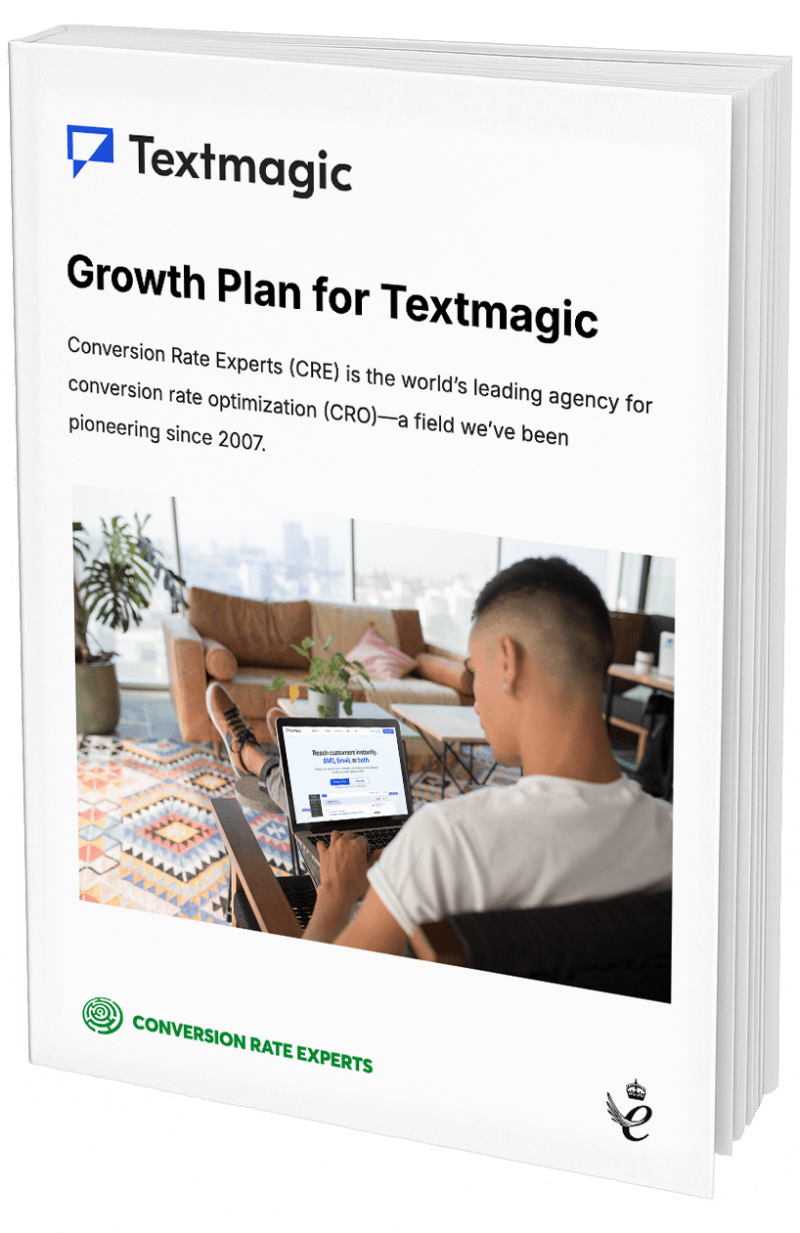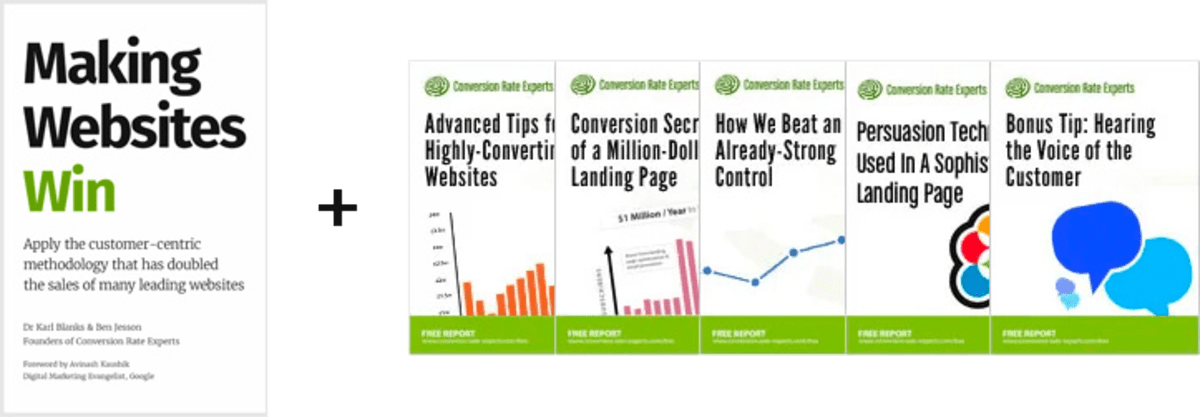Nineteen tips for digesting books rapidly
(By the way, to get articles like this free in your inbox, subscribe to our newsletter.)
—and none of them involve speed-reading

To become great at conversion, you need to read a lot. We have read thousands of books. Some are about marketing, and some are about our client’s businesses. For example, we own eight books on home security. They were valuable in helping us to grow the revenues of one of our clients, SimpliSafe, by five times.
In the following article, we share our favorite tips for transferring the contents of a book into your brain. Without feeling frazzled:
Speed-reading courses train you to
- Scan text quickly (by controlling your eye movements).
- Interpret the text without subvocalizing the words (that is, without hearing them in your head).
- Reduce the amount of “skipping back” (regressions).
Some people swear by speed-reading courses, but many of the claims appear exaggerated. The series of videos beginning with “The Science Behind Reading Speed” gives a critical overview of what works and doesn’t.
The following tips are more useful than speed-reading. And they don’t leave you feeling like you need to lie down in a dark room. The tips focus on locating the best information. Even if speed-reading could quadruple your reading speed, that’s nothing compared with the increase you can get by identifying the best book from thousands. And then identifying the 10% of that book that contains the key information.
How to find the most valuable books—and avoid wasting time on other ones
One great book can be more valuable than a thousand bad ones. So here are some of our favorite techniques for finding the best books.
- In theory, book-summary services should be great. However, we’ve used several of them, and haven’t found them useful, except maybe to reveal which books would be worth buying. Many book-summary services seem to suck the life out of the books. Philosopher’s Notes, which summarizes self-help books, was the only one we found worthwhile. Maybe it’s about the skill of the reviewer. The book “The Personal MBA” does a fantastic job of summarizing many business concepts, albeit not in a book-by-book format.
- Ask almost everyone you meet which books they find the most useful. Discount the ones they have read within the last few weeks; people usually overvalue whatever they have read recently. Remember, the best recommendations come from a tiny fraction of the people.
- Spend a lot of time reading reviews on Amazon.com (the non-US Amazon sites are less useful because they have fewer reviews). The top review often contains a decent summary.
- If a book looks good, use Amazon’s “Look inside” feature to read the table of contents, which gives you a good idea of what the book contains. (At the time of writing, Amazon.com allows you to ”Look inside” many books that you can’t look inside on non-US Amazon sites.) Also, use the “Look inside” feature to skim through the book’s index, if it’s visible. Even though the index is just a dictionary of words, it gives an idea of which concepts are most mentioned.
- Read the front and back covers of the book, plus the blurb.
- Search for “[book name] summary”, which is occasionally helpful.
- It can help to search for videos of talks given by the author. Some books are little more than fleshed-out talks.
- Buy a lot of books—on Kindle whenever possible. Kindle offers some useful features like searchability.
How to digest books rapidly
- Be quick to abandon a book. Treat books like they are free (which they effectively are compared to the value of the reader’s time)—we usually don’t read the whole book.
- Begin by reading the Kindle “popular highlights” to see what other readers highlighted.
- Some books have one or two key chapters that contain the big idea, hidden within about seven chapters of padding. Study the table of contents trying to figure out the key chapters. We know one book with one key sentence and a whole book’s worth of padding. (Admittedly, it’s a good sentence.)
- Look at all the diagrams. In some business books, the entire book is encapsulated in the diagrams.
- In many books, one of the early chapters is a walk-through of the whole book—like a more readable version of the table of contents. In some books, the final chapter contains a good wrap-up of the book’s conclusions.
- In many books, the first paragraph of each chapter explains what the chapter will contain, and the final page of each chapter includes a useful stand-alone summary of the chapter.
- If a chapter starts to drag, read each paragraph’s first (and maybe the last) sentence. The first sentence usually signposts what the paragraph will contain. The last sentence often concludes what was said in the paragraph.
- To summarize the three tips above: In a well-written book, you can learn a lot by reading the start and end of each paragraph, each chapter and the whole book.
- It’s easier to remember information if you have interacted with it. So write notes as you go along, summarizing the book, highlighting key phrases, and treating it like you’ll never re-read it (which is often true).
- Re-read your notes a few weeks later. Such spaced repetition ensures that the most important information stays in your mind.
- Audiobooks are a great way to learn on the move (on a commute, while doing chores, or while exercising).
Happy, productive reading!
How much did you like this article?
What’s your goal today?
1. Hire us to grow your company
We’ve generated hundreds of millions for our clients, using our unique CRE Methodology™. To discover how we can help grow your business:
- Read our case studies, client success stories, and video testimonials.
- Learn about us, and our unique values, beliefs and quirks.
- Visit our “Services” page to see the process by which we assess whether we’re a good fit for each other.
- Schedule your FREE website strategy session with one of our renowned experts.
Schedule your FREE strategy session
2. Learn how to do conversion
Download a free copy of our Amazon #1 best-selling book, Making Websites Win, recommended by Google, Facebook, Microsoft, Moz, Econsultancy, and many more industry leaders. You’ll also be subscribed to our email newsletter and notified whenever we publish new articles or have something interesting to share.
Browse hundreds of articles, containing an amazing number of useful tools and techniques. Many readers tell us they have doubled their sales by following the advice in these articles.
Download a free copy of our best-selling book
3. Join our team
If you want to join our team—or discover why our team members love working with us—then see our “Careers” page.
4. Contact us
We help businesses worldwide, so get in touch!
© 2026 Conversion Rate Experts Limited. All rights reserved.















